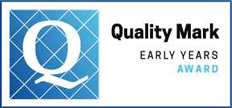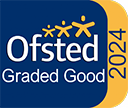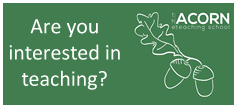Early Years Pupil Premium
Early Years Pupil Premium at Willow
As from April 2015, Early Years settings have been able to access Early Years Pupil Premium Funding each term. This money is designed to narrow the attainment gap between young children from low income families and their peers, setting them on a path to a more successful future.
Evidence shows that children from less advantaged backgrounds can start school 19 months behind their peers, but that good quality childcare can reduce this gap and have a significant benefit in terms of a child’s development.
Children who receive good-quality early years education go on to earn around £27,000 more during their career compared to those who don’t, and are also likely to do better at school – the equivalent of 7 GCSE grades at grade B compared to grade C.
Schools Minister David Laws said:
Every child should be able to reach their full potential, no matter what their background. The pupil premium is already helping to build a fairer society with opportunity for everyone. The extension of the pupil premium to early years will give toddlers from the poorest families the support they need to develop and learn at this important early stage. This additional funding will ensure providers have the resources to give all children the best possible start in life.
Willow Nursery School can claim the funding for children whose parents are in receipt of:
- income support
- Income based Job Seekers Allowance
- Income-related Employment and Support Allowance
- support under part VI of the Immigration and Asylum Act 1999,
- guaranteed element of State Pension Credit
- Child Tax Credit
- Working Tax Credit
- Universal Credit
We can also claim funding for your child if:
- They have been looked after for 1 day or more
- They have been adopted from care
- They have left care under a special guardianship order or residence order.
Children become eligible in the term after they turn three.
The school will gain £353 for each child that is eligible for the Early Years Pupil Premium.
In the autumn term, we spend the Early Years Pupil Premium funding on buying some games and equipment for the eligible children to use and explore at school and then take home to play with and keep.
The eligible children work as part of a small group who meet with a member of staff each week (for 10 weeks) to explore each activity. The kinds of activities include playing shape games, alphabet puzzles, play dough, number games, craft activities and creating with Lego.
Our rationale behind this is to give the eligible children quality time with a member of staff to help develop communication, language and social skills. Research suggests that children from less advantaged backgrounds may have poorer communication and language skills from that of their peers.
In the spring term, eligible children take take part in quality cookery lessons. The children learn about a variety of different foods and healthy eating. The children have one lesson per week for ten weeks. The children experience a wide range of cooking techniques. They learn about preparing the food, cooking the food and tidying away together afterwards. They all receive a cookery set and book to take home and keep once they had completed the cookery course!
Our rationale behind this is to again give the eligible children quality time with a member of staff to help develop communication, language and social skills. We want to give them the opportunity to take part in and learn about something new to give them new vocabulary and to encourage them to be inquisitive, to ask questions and to develop their thinking and reasoning skills.
In the summer term, the eligible children take part in growing and planting lessons for 10 weeks. This takes part mostly outdoors with a member of staff. The children grow seeds, learn how to care for plants and make their own miniature garden. They have a gardening set and book to take home.
Our rationale behind this is to again give the eligible children quality time with a member of staff to help develop communication, language and social skills. We want to give them the opportunity to take part in and learn about something they may not have taken part in before. This will give them new vocabulary and will encourage them to be inquisitive, to ask questions and to develop their thinking and reasoning skills.
Click here for the 2016 summer report
Click here for the 2017 summer report
Click here for the 2018 summer report
Click here for the 2019 summer report
Click here for the 2020 summer report
Click here for the 2021 summer report
Click here for the 2022 summer report
Click here for the 2023 report



